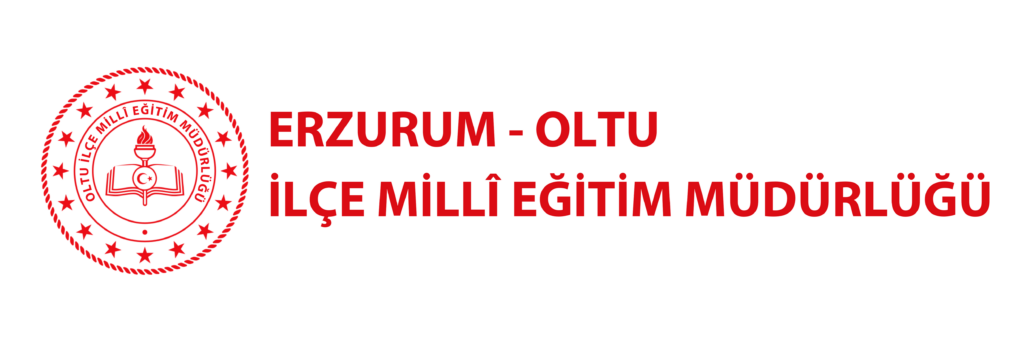PARTNERS COOPERATION
Research on Education in Business and Technology.

Eastern Partnership
The Eastern Partnership (EaP) is the external policy of the European Union, implemented within the framework of the European Neighbourhood Policy, addressed to six countries: Armenia, Azerbaijan, Belarus, Georgia, Moldova and Ukraine.
The main initiators of the creation of the EaP as a structured policy that would support regional cooperation and serve to strengthen the EU’s relations with its Eastern European partners were Poland and Sweden. The initiative presented during the European Council summit in June 2008 was supported by the European Commission and the EU Member States. The programme was officially launched on 7 May 2009 in Prague at the summit of the heads of state and government of the EU and the partner countries. 2024 will therefore mark 15 years since the inauguration of the EaP, which today faces new challenges, primarily as a result of the ongoing Russian attack on Ukraine. Another new factor is the increasing differentiation of the “6” countries in terms of their progress in the EU accession process. The greatest progress on this path was recorded by Ukraine, Moldova and Georgia. The decisions of the European Council in December 2023 to open accession negotiations with Ukraine and Moldova and to grant candidate status to Georgia were also possible thanks to the involvement of these countries in the work of the EaP. Poland intends to use the period of its presidency of the EU Council (first half of 2025) to stimulate discussion on the future of the EaP and to better define its role in the new geopolitical situation. We pay special attention to the development of civil society and dialogue with non-governmental organizations.
EaP pillars
Strengthening state institutions and good governance
The main goal of this pillar is to improve the quality of state institutions by supporting reforms in public administration, the civil service and the judiciary, and fighting corruption. An important part is cooperation in the field of the Common Security and Defense Policy.
Economic development – using market opportunities
The implementation of the above pillar aims to ensure macroeconomic stability in the region by supporting small and medium-sized enterprises, equalizing opportunities on the labor market and development differences between regions, and developing the digital market. The main tool is the agreements on a deep and comprehensive free trade area signed with Georgia, Moldova and Ukraine, the implementation of which is one of the most important tasks facing the partner countries.
Expansion of connections (connectivity), energy and environmental issues
Connectivity includes the expansion of both “hard” connections (transport, energy, digital, interpersonal) and “soft” connections (standards, good practices, etc.). This is to lead to a permanent legal and infrastructural link between the EU and the EaP countries, which will result in closer cooperation at the social, economic and political levels.
Improving mobility and interpersonal contacts
Visa facilitation, as well as strengthening the communication infrastructure (digitalization, abolition of roaming, construction of connections) is ultimately intended to increase the number of visits by citizens of the eastern neighborhood to the Union, and thus direct contact with its residents. Strengthening youth exchange programs additionally has a positive impact on the development of interpersonal relations.
Source of information:

The Eastern Partnership Civil Society Forum
We work with 1,200 European and Eastern Partnership civil society organisations making us the largest platform supporting democratic transformation and European integration in the Eastern Partnership.
Source of information:
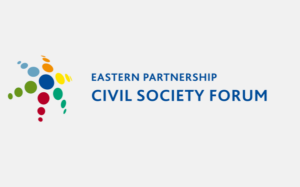
Publishing Partner: Consortio – Journal of Economics, Social Sciences, Law and Education
Consortio – Journal of Economics, Social Sciences, Law and Education
Source of information:
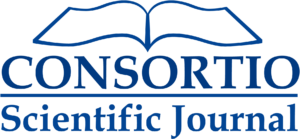
Our Partners
Cardinal Stefan Wyszynski University in Warsaw
ardinal Stefan Wyszynski University in Warsaw educates 11 000 students in 95 fields of study, including medicine, psychology, law, journalism, environmental engineering, Italian philology and economics. Cardinal Stefan Wyszyński University in Warsaw is distinguished by its experienced, highly specialized academic staff and modern scientific facilities. The roots of UKSW go back to the Academy of Catholic Theology, which in 1999 turned into a broad-profile university. Currently, it has 12 faculties: Biology and Environmental Sciences, Mathematics and Natural Sciences. School of Exact Sciences, Faculty of Medicine. Collegium Medicum, Historical Sciences, Humanities, Pedagogical Sciences, Law and Administration, Faculty of Social and Economic Studies and four so-called church faculties – Theology, Canon Law, Family Studies and Christian Philosophy, which, in addition to the supervision of the Ministry of Education and Science, are subject to the authority of the ecclesiastical authorities. The youngest unit is the UKSW Faculty of Medicine. Collegium Medicum. UKSW students acquire knowledge in the full-time and part-time system, in uniform master’s studies and first- and second-cycle studies. The University also gives you the opportunity to improve your professional qualifications at postgraduate studies and at the Doctoral School. The teaching and research staff of UKSW consists of about 760 academic teachers, many of whom annually receive prestigious awards for scientific, research and teaching activities. UKSW has 14 authorizations to confer doctoral degrees and 10 authorizations to award habilitation degrees. In recent years, the Cardinal Stefan Wyszyński University has transformed into a modern scientific and research center. UKSW’s infrastructure consists of three campuses: in Bielany at 5 Dewajtis Street, in Młociny at 1/3 Wóycickiego Street and in Dziekanów Leśny near Warsaw. On the Wóycickiego campus in the Mazovian Laboratory Center for Natural Sciences, which is equipped with the most modern equipment for conducting analyses and experiments, practical classes for students of exact and medical sciences are held. The latest investment on the Wóycickiego campus is the modern Collegium Medicum building, opened in spring 2022. On the campus in Dziekanów Leśny, which is of a research and scientific nature, a Multidisciplinary Research Center has been launched. Its purpose is to implement innovative solutions of digital and IT technologies to the social and economic environment. The university also has a modern Sports Hall with an auditorium for 230 seats and a radio and television studio. Cardinal Stefan Wyszyński University in Warsaw is both state-owned and Catholic at the same time, due to its roots and current vocation. Our identity stems from the search for the truth about man and the search for God in all dimensions of the functioning of modern society. The mission of the University is to conduct research and educate future intellectual elites for the state, the world and the Church.
Source of information: http://www.uksw.edu.pl
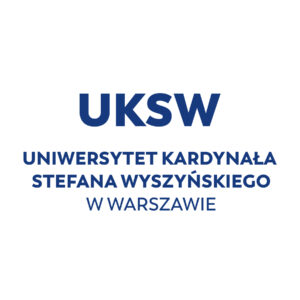
Europäisches Haus Esthal GMBH
The organization is a recently established company with a strong foundation in ideological principles and a robust human resource base. Despite its business structure, it is primarily driven by pro-social objectives, with a focus on operating the Esthal center while promoting values such as dialogue, respect, and interaction. The organization also aims to identify, nurture, and promote European values through events like meetings, symposiums, and training sessions. It actively supports international exchange initiatives, ecological projects, and sustainable development. The organization emerged as an extension of the founders’ work, utilizing a legal structure to continue the church center’s mission even after liquidation. Despite its youth, the organization is effective, hosting intergenerational and family events, prioritizing local employment, and contributing to the socio-economic fabric of the community. Dr. Jarosław Krzewicki, the president, is a key figure with expertise in law, theology, and a strong background in promoting spirituality, science, and intercultural dialogue.
Source of information:
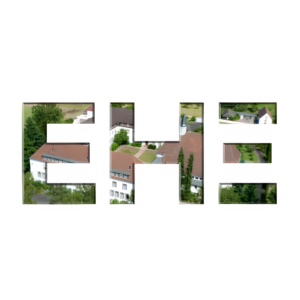
Rezeknes Tehnologiju Akademija
Rezekne Academy of Technologies is a dynamic, active, and developing state founded non-university type higher education institution since 1925 with unlimited international accreditation located in Latvia – a beautiful and safe country which is one of the European Union member states and is situated in the north of Europe – on the shores of the Baltic Sea. Across is three faculties, the Academy provides studies leading to bachelor, master, or doctoral degree. RTA is a greate place for those who are looking for competitive European-level academic or professional higher education and opportunities to do research in education science, humanities and arts, social science, engineering, information and communication sciences, manufacturing and construction..
Source of information:
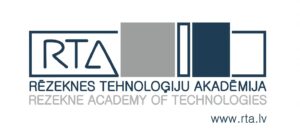
Sumy State University
Sumy State University (SumDU) is a higher education institution of a classical type located in the city of Sumy, North-Eastern part of Ukraine. Its history goes back to 1948, when it started to train engineers to address demands of regional industry. After a range of transformations as a polytechnic institution, in 1993 Sumy State University obtained its status of a comprehensive HEI. Today, the University follows the ideology of research institution where scientific activity together with a large-scale international cooperation and the focus on innovation technologies, in particular ICT, is dominating. Research and educational activity of SumDU embraces a wide scope of subject areas from engineering and ICT to natural and social sciences, medicine and humanities. The University currently serves about 12,000 students who are pursuing bachelor, master and PhD degrees in 55 majors and 24 fields of knowledge. Currently, about 2000 of foreign students at SumDU represent 50 countries worldwide. 15 study programmes are entirely taught in English. SSU has Laboratory VR and AR SSU, AI Laboratory, e-learning. As result SSU has unique experience of creating and using AI, VR, AR technologies at educational processes.
Source of information:
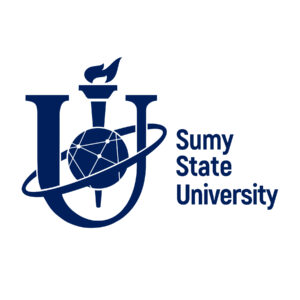
Muğla Sıtkı Koçman University (MSKU)
Muğla Sıtkı Koçman University (MSKU) was established in 1992 as a state university. Over the three decades, the university has grown to include 20 faculties,4 graduate schools, 16 vocational schools, and 47 research and application centres. Since the beginning, MSKU has been in pursuit of quality higher education and research in order to contribute to the sociocultural, scientific, and technological development of Turkey by servicing over 45,000 students and employs over 1,600 full time academic staff.
Source of information:
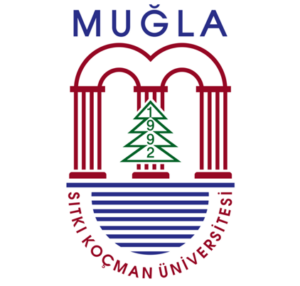
KARABEKIR ILKOKULU
Karabekir Primary School, which started its education activities in 1944, has one of the oldest and historical buildings in our district.
The stone building, built in 1891, was previously used as a health center. It was used as Karabekir Primary School after 1944. The historical stone building of our school was restored in 2003. Some of the classrooms were combined and converted into a conference hall. Our school carries out its social activities in this hall. In our school, half-day pre-school education is provided to 31 students in the 5-6 age group. 345 students in the 7-10 age group receive training on Life Sciences, Life Skills, Turkish, Mathematics, Visual Arts, Physical Education, Citizenship and Social Rules in accordance with the basic education curriculum.
Source of information:
